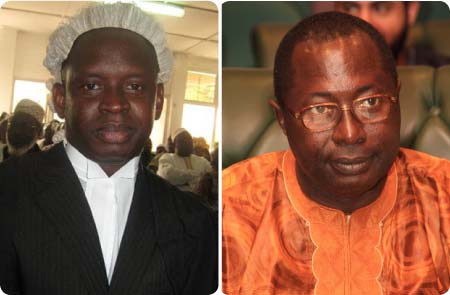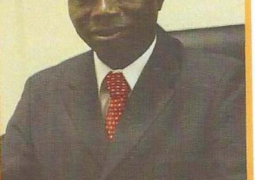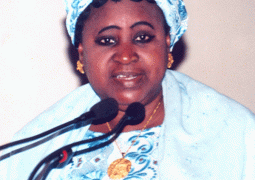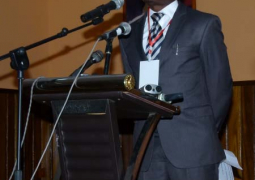
This followed a ruling delivered by Justice Emmanuel Nkea on the no-case-to-answer submission made by their defence counsel.
“When I look at exhibit “E” it immediately seems to me that the prosecution has made out a prima facie case requiring all accused persons to enter a defence,” he said.
“I rule, therefore, that the submission of no-case by counsel for the 1st and 2nd accused persons is hereby overruled,” Justice Nkea stated.
“I find that there is a prima facie case made out against all the accused persons herein, sufficient to call on them to enter a defence. I call upon the accused persons to give evidence in their defence,” he added.
Delivering the ruling, Justice Nkea stated that at the end of the prosecution’s case, counsel for the 2nd and 1st accused respectively, made a no-case submission on behalf of the 2nd and 1st accused persons.
He said the thrust of the submissions on behalf of the 2nd and 1st accused persons are that the evidence led by the prosecution does not reveal any element of the offences charged, and as such the court ought not to call upon them to answer the charges pressed against them.
The summation of the arguments was that the evidence presented by the prosecution does not reveal any incriminating acts or omissions against the 1st and 2nd accused persons, he said.
In response, he continued, Mr Abie, appearing for the state, urged the court to avert its mind to the fact that the case at hand depends largely on documentary evidence.
“Having carefully gone through the entire evidence adduced by the prosecution, and having also carefully considered the submissions on both sides, it is my view that the sole issue for determination at this point is whether the prosecution has made out a prima facie case requiring the 1st and 2nd accused persons to put in their defence,” he added.
He said it was his view that, in deciding whether or not to uphold a no-case submission, the test to be applied was whether there was evidence which, if accepted, would provide evidence of each element of the offence (s) charged.
“Even if there is such evidence, it may be so lacking in weight and reliability that it is open to the court as a matter of discretion to dismiss the information,” he said.
As such, he went on, where a court comes to the conclusion that the prosecution’s evidence taken at its highest was such that a court could not properly convict on it, it was its duty, on a submission being made, or suo motu to uphold the no-case submission.
“Where, however, the prosecution’s evidence is such that its strength or weakness depends on the view to be taken of a witness’s reliability, or other matters, and where on one possible view of the facts there is evidence on which a court could properly come to the conclusion that the accused person is guilty, then the court should allow the matter to be tried,” said Justice Nkea.
He said it was established that it was not necessary that the accused persons concocted the scheme, or that they originated it, but that it would be sufficient if they joined afterwards, and when he look at exhibit “E” it immediately seems to him that the prosecution had made out a prima facie case requiring all accused persons to enter a defence.
“I rule, therefore, that the submission of no-case by counsel for the 1st and 2nd accused persons is hereby overruled,” Justice Nkea stated.
“I find that there is a prima facie case made out against all the accused persons herein, sufficient to call on them to enter a defence. I call upon the accused persons to given their evidence in defence,” he declared.
Lamin Jobarteh, Pa Harry Jammeh and Dr Njogu L. Bah are being tried on a three-count charge, which included conspiracy to carry out a lawful purpose by an unlawful means, giving false information to a public officer, and abuse of office, at the Special Criminal Court in Banjul before Justice Emmanuel Nkea.




